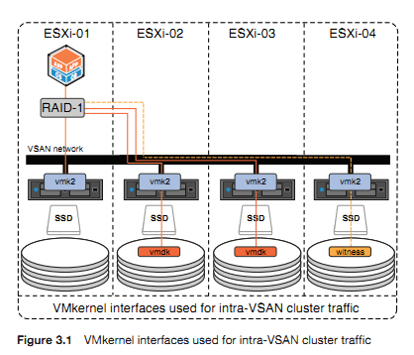Cookie giúp chúng tôi cung cấp các dịch vụ của mình. Đồng nghĩa với việc sử dụng được dịch vụ của chúng tôi, Bạn đồng ý với việc sử dụng cookie của chúng tôi ?
Bạn không có sản phẩm nào trong giỏ hàng của bạn.
Các sản phẩm được gắn thẻ 'cookbook'
VMware NSX® for Disaster Recovery
VMware NSX for Disaster Recovery - Day 1 brings together the knowledge and guidance for planning, designing, and
implementing a disaster recovery architecture for the software-defined data center that meets the needs of your
business. VMware NSX simplifies the DR planning and testing that goes into a resilient infrastructure and drastically reduces the time it takes to recover from an event. It enables true workload portability between data centers, private clouds or public clouds. NSX has helped enterprises recover from natural disasters and outages as well as simplifying the mergers and acquisitions of organizations and their networks. VMware NSX for Disaster Recovery - Day 1 is your roadmap to create a robust network infrastructure within software-defined data centers running NSX. You will find insights and recommendations proven in the field for moving your organization to a resilient, highly available architecture based on VMware NSX.
$15.00
$12.99
VMware vSAN 6.7 U1 Deep Dive
Cormac Hogan is a Chief Technologist in the Office of the CTO in the Storage and Availability business unit at VMware. Cormac was one of the first
VMware employees at the EMEA headquarters in Cork, Ireland, back in 2005, and has previously held roles in VMware’s Technical Marketing,
Integration Engineering and Support organizations. Cormac has written a number of storage-related white papers and has given numerous presentations on
storage best practices and new features. Cormac is the owner of CormacHogan.com, a blog site dedicated to storage and virtualization. He can be followed
on twitter @CormacJHogan.
Duncan Epping is a Chief Technologist working for VMware in the Office of CTO of the Storage and Availability business unit. Duncan is responsible
for ensuring VMware’s future innovations align with essential customer needs, translating customer problems to opportunities and function as the global
lead evangelist for Storage and Availability. Duncan is the owner of VMware Virtualization blog Yellow-Bricks.com and has various books on the topic of
VMware including the “vSphere Clustering Deep Dive” series. He can be followed on twitter @DuncanYB.
Acknowledgements
We would like to thank our VMware management team, Christos Karamanolis and Yanbing Li, for supporting us on this project. A special thanks goes out
to our technical reviewers from VMware: Frank Denneman and Pete Koehler. Thanks for keeping us honest and contributing to this book.
Lastly, we would like to thank everyone who has been supporting us by buying this book, attending our sessions at VMUGs/VMworld, and visiting our
blogs. We truly appreciate it
$25.96
$9.99
VMware vSphere 6.7 Clustering Deep Dive
The realm of technology is one that has traditionally been constructed on silos. We tend to fragment our skills into very specific areas of expertise, even going so far as to isolate the very people who run data center and
cloud operations into little buckets of focus and energy. I’d like to think that this, more than anything, was the root cause for such painfully slow progress towards realizing the dream of a fully software defined data center. I had always felt a bit stifled by this organizational fragmentation and thirsted for a way to put my hands on just about any solution that shows the promise of removing the burden of manual processes. Since you’re reading this book, I’ll make the assumption that you have had similar thoughts.
$39.95
$9.99
VMware vSphere 6.7 Data Center Design Cookbook - Third Edition
Design a virtualized data center with VMware vSphere 6.7
Key Features
Get the first book on the market that helps you design a virtualized data center with VMware vSphere 6.7
Learn how to create professional vSphere design documentation to ensure a successful implementation
A practical guide that will help you apply infrastructure design principles to vSphere design
$65.99
$39.99
VMware vSphere Performance 6.5: Designing CPU, Memory, Storage, and Networking for Performance-Intensive Workloads
It’s hard to believe how far we’ve come in the virtualization industry. What was once considered
a niche technology used only for development and testing is now used for production work-
loads and even business-critical applications. The VMware vSphere platform is capable of sup-
porting nearly any virtualized workload with very few obstacles standing in the way of close to
100 percent virtualization.
Today’s workloads are more demanding than ever before. Email servers frequently require
large amounts of memory and CPU resources in order to handle the large volume of email that
we all deal with on a daily basis. Database servers often require large amounts of memory and
storage resources, from a capacity perspective as well as performance, to meet the demands of
a business. And newer technologies, such as virtual desktop infrastructure (VDI), have intro-
duced signii cant demand for resources in vSphere environments.
$32.49
$16.25






